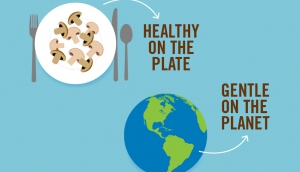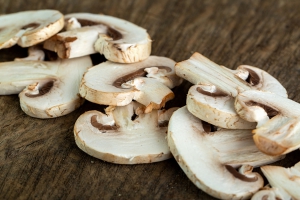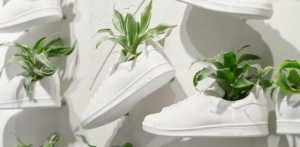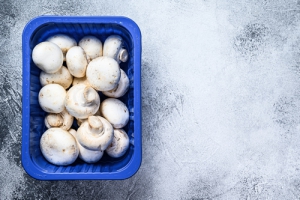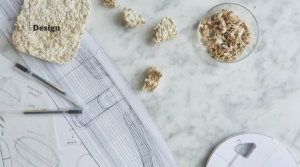The mushroom sustainability story
Today, consumers are beginning to use one more guideline to determine how to spend their food dollars – sustainability. The public is increasingly curious about where and how their food is produced and what impact it has on the environment; and for good reason, the world’s population is rapidly expanding, and it’s estimated there will be over 9 billion people on the planet by 2050.
A mushroom sustainability study reveals the mighty mushroom not only is healthy on the plate, it’s also gentle on the planet.
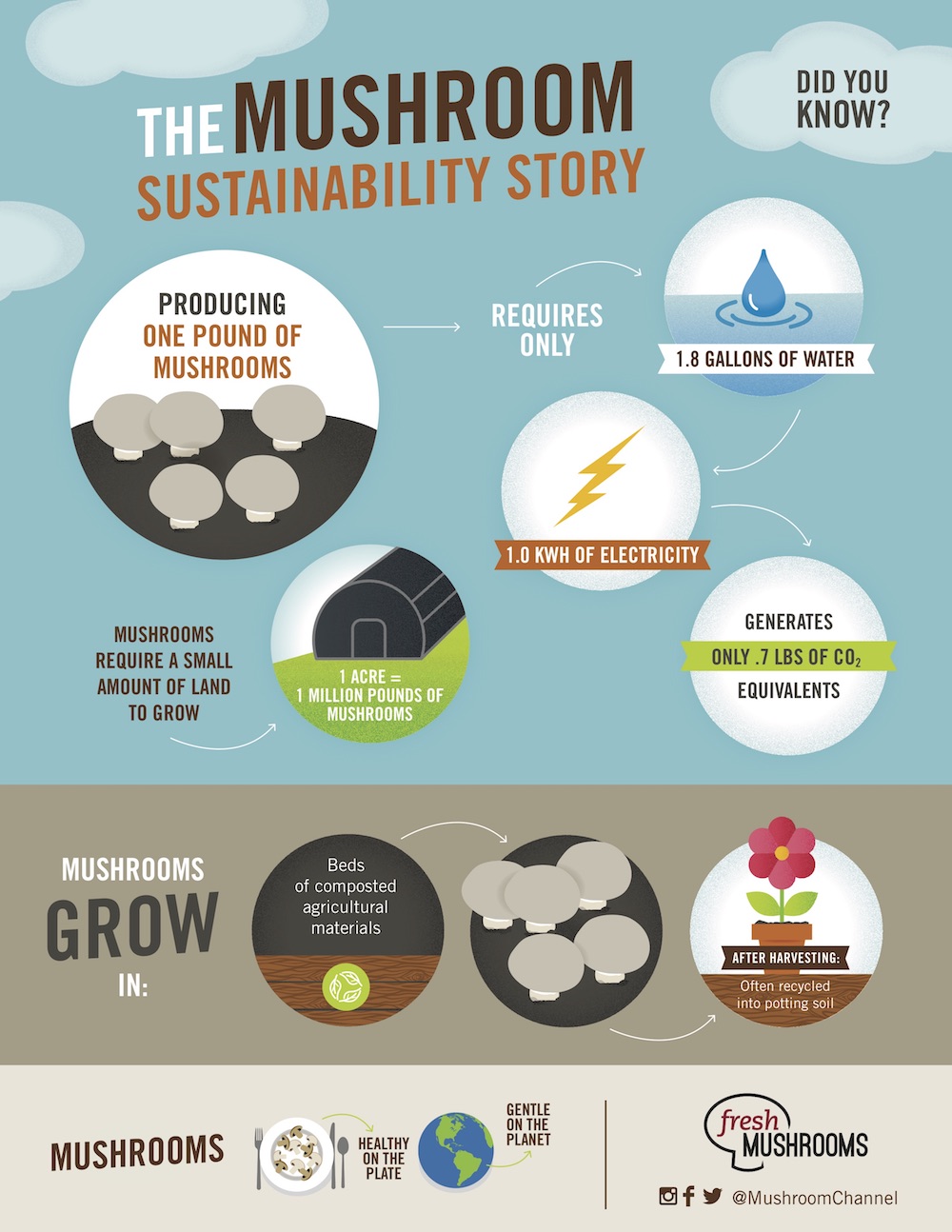
The study finds production of a pound of mushrooms requires only 1.8 gallons of water and 1.0 kilowatt hours of energy, and generates only .7 pounds of CO2 equivalent emissions. In addition, the annual average yield of mushrooms is 7.1 pounds per square foot – meaning up to 1 million pounds of mushrooms can be produced on just one acre.
Even though this research is from 2017, it becomes even more relevant in the coming years.
Please click here for the full article and research material.
Students develop potato chips based on mushrooms
In May 2020, the Shiitake Biltong team from Maastricht took part in the student competition Ecotrophelia. They have continued to develop new food products. Soon they hope to start their own company that will enter the market with potato chips based on mushrooms.
For Ecotrophelia, the group of Maastricht students presented a vegetarian variant of the biltong which is popular in South Africa; a snack consisting of dried strips of meat that resembles beef jerky. The students won the Dutch final with it and were also allowed to present the idea during the European final.
After the team took another critical look at the idea, the students came to the conclusion that shiitake as a raw material was not such a smart choice. Good shiitake is hard to get and must be imported from Asia. That is expensive and not really sustainable.
The team went back to work and now opted for raw materials from a Dutch residual flow. They developed mushrooms based on pieces of sliced mushrooms. The idea has been elaborated in a business plan, contacts have been made with suppliers, buyers and a possible producer. At this time the production process is optimized and the students are about to start their own company.
Source: Foodholland (article is in Dutch)
Adidas has announced it’s launching a line of sneakers made from mushroom-based leather.
As part of a 2021 sustainability initiative from Europe’s largest sportswear manufacturer, the new Stan Smiths will be entirely vegan, and created using mycelium: that is, the vegetative part of fungi that produces mushrooms.
On December 28, the German multinational announced that “adidas seeks to break new ground: Together with partners, adidas is developing a new material, a purely biological leather alternative made from mycelium, and will use it for the very first time in the creation of footwear.”
This isn’t the company’s first foray into vegan footwear. In 2020, Adidas launched plant-based versions of several classic sneakers, which quickly became bestsellers. Now it’s completely renounced the use of fur in all products, and it’s working with partners on other sustainability projects that include recycling cotton and developing a “particularly climate-friendly running shoe” as part of a drive that will see 60% of all Adidas products in 2021 being made with sustainable materials.
Please read the full article here.
Source: Good News Network
Blue mushroom trays exit
Blue mushroom trays will be removed from the shelf and will be replaced by circular packaging
The famous blue mushroom trays are sold from supermarkets. Verstappen developed a new packaging line for mushrooms and mushrooms for Albert Heijn. The trays are completely transparent and consist of 100% recycled PET bottles. With this, Verstappen is taking another step in making business operations and the production of packaging materials more sustainable.
Circular process
The new packaging from Verstappen contributes to the circular economy to which the company attaches great value. Mieke Verstappen, director of Verstappen explains: “The great thing about this innovation is that the plastic used has already been in the shops as consumer packaging and is extremely suitable for making new food packaging. In this way we can permanently reuse the material. A perfect example of the circular economy. ”
Please read the full article (in Dutch) here.
Source: Duurzaam Ondernemen
Mycelium packaging
Designer Nina Bruun shapes biotech firm Grown's mushroom-based material for the safe carriage of Astep lighting.
One of the key aims of Wallpaper* Re-Made is to re-think the way we consume, and packaging is a crucial link in this story. Last year, a chat with Alessandro Sarfatti led to a discussion about what he perceived to be an important problem. Coming from a family of lighting experts (he is the grandson of design legend Gino Sarfatti, of Arteluce, see W* 218 and son of Luceplan founder Riccardo Sarfatti), and founder of a lighting brand himself, he is well aware of the amount of plastic needed to transport lighting pieces.
Sarfatti, who used to be CEO of Luceplan, founded Astep in 2014, intent on creating lighting products with contemporary designs and innovative technologies to improve our domestic experience and quality of life.
Please read the full article here.
Photography: Mikkel Vigholt Petersen
Writer: Rosa Bertoli
Gasa monks take up oyster mushroom cultivation
Monks and agriculture. It is a sweet combination and a lesson on sustainability.
In Gasa rabdey, the monks, their robed folded high up, are preparing mushroom cultivation. Fifteen monks even underwent a two-day training on fungiculture.
The training, Umzey Tshering Dhendup said, came after the agriculture officials came to enquire if the monks would be interested in growing their own food.
“After Covid-19, we had to think about the importance of agriculture,” he said. “Monks also need such skills.”
Gasa dratshang spends about Nu 70,000 to buy vegetables every month. The expenditure is covered from the stipends the monks receive. From Nu 1,400 that each monk receives, Nu 1,000 is set aside to procure vegetables.
In a corner of the dratshang’s storehouse are 60 bags of oyster mushroom seeds. In five weeks, the dratshang can harvest at least 60kg mushroom.
A kg of oyster mushroom sells for Nu 200 in market.
For the full article, click here














